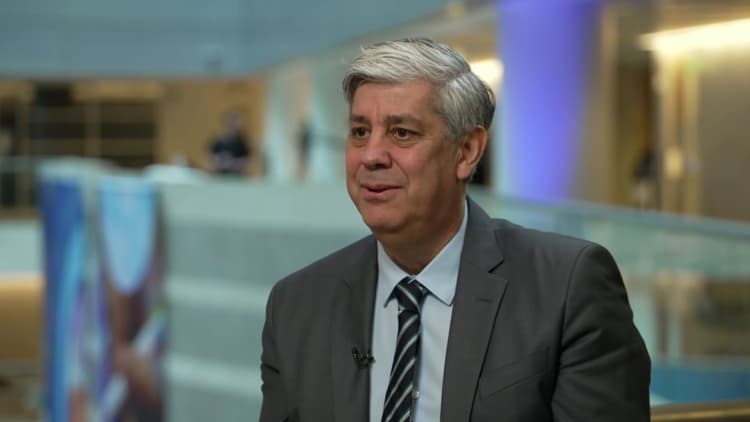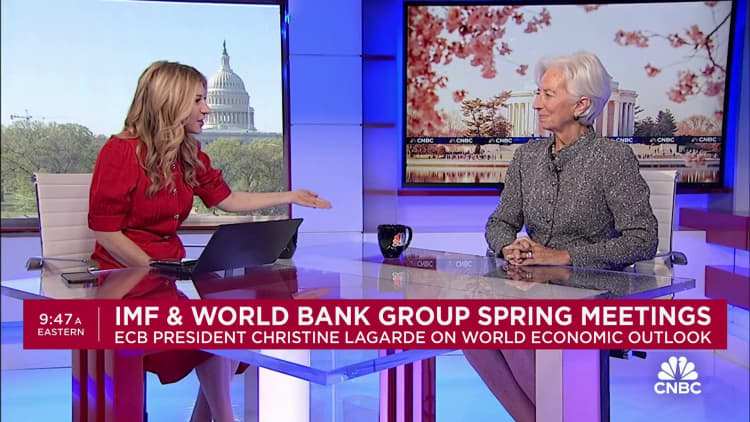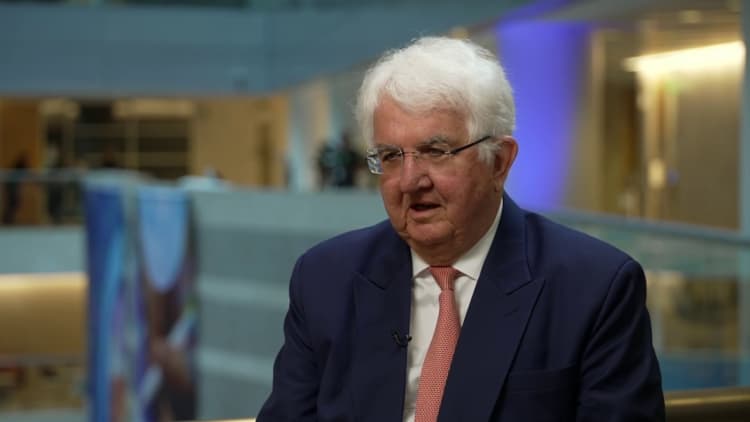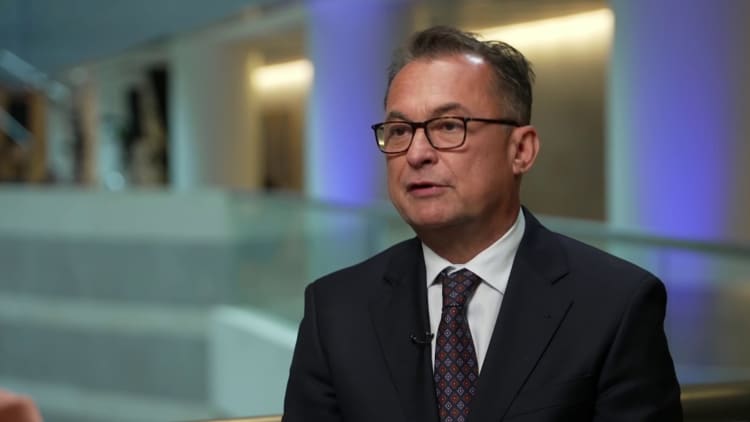
Joachim Nagel, President of the Deutsche Bundesbank, during an interview with Bloomberg Television following the central bank’s “Annual Report 2023” press conference in Frankfurt, Germany, Friday, February 23, 2024.
Alex Kraus | Bloomberg | Getty Images
European Central Bank policy chief Joachim Nagel said on Wednesday that a cut in the institution’s interest rates looked increasingly likely for June, but added that parts of the upcoming inflation data always seemed higher than desired.
“As for the June meeting, I think the likelihood is increasing that we will see a rate cut in June, but there are still some reservations,” the head of the German Bundesbank told CNBC’s Karen Tso at the IMF spring meetings held in Washington, DC.
“Core inflation remains high, as does services inflation. For the June meeting we will have our projections, so we will have our new forecasts and if there is confirmation that inflation is actually falling and that we will reach our target in 2025, as I said, the probability that this rate becomes higher and higher. the cup is there for the June meeting,” Nagel said.
Asked about continued pressures on wage prices in the Eurozone, he said that in Germany, wages remained dynamic, but overall remained on a downward trajectory. On energy prices, he said the recent rise in oil prices – compared to last year – posed “uncertainty” in what he described as a volatile environment.
“I think we have learned a lesson in 2022, we are exposed to all of this,” he said of a crisis in Europe that is particularly acute for his country’s industrial sector.
“We may be more resilient than two years ago. But nevertheless, if oil and energy prices rise, it’s not just a matter for Germany, it’s for all of us .”
Several ECB officials have made remarks about their interest rate expectations in recent days.

Earlier on Wednesday, Mario Centeno, governor of Portugal’s central bank, said it was “time to change this monetary policy cycle.” Centeno highlighted the slowdown in inflation, but also reiterated that the ECB’s main decision-making body is data-driven.
The ECB’s decision on interest rates in June would be “very important”, he said.
“I am confident that we will provide the response that is consistent with the recovery of the euro zone economy that we anticipate in our forecasts,” he told CNBC’s Tso, noting that market expectations for June were “very clear”.
The markets are largely pricing in the ECB’s first rate cut which will take place in June.

On Thursday, the ECB left its interest rates unchanged for the fifth time in a row. The central bank also changed its stance on possible rate cuts, noting that a cut “would be appropriate” if the bank was convinced that inflation was falling toward its 2% target “sustainably.”
Inflation in the euro zone slowed more than expected, to 2.4% in March.
Earlier this week, ECB President Christine Lagarde said that barring any major shocks, the ECB was poised to cut interest rates soon. The disinflation process is proceeding as expected, she told CNBC’s Sara Eisen.
“We just need to build a little more confidence in this disinflationary process, but if it develops according to our expectations, if we don’t have a major shock in development, we are heading towards a time where we will have to moderate the restrictive monetary policy,” she said.

Separately, Austrian Central Bank Governor Robert Holzmann said on Wednesday that the ECB was interested in economic growth as well as inflation, as both could impact monetary policy and decisions in interest rate matters.
Holzmann said geopolitical tensions in the Middle East pose the biggest risk to interest rate cuts, particularly because of their potential impact on energy prices.
He also added that he was not yet fully committed to a rate cut in June, explaining that the bank was awaiting the results of a number of salary negotiations, which will take place in the spring, as well as the evolution of the oil market.

cnbc





